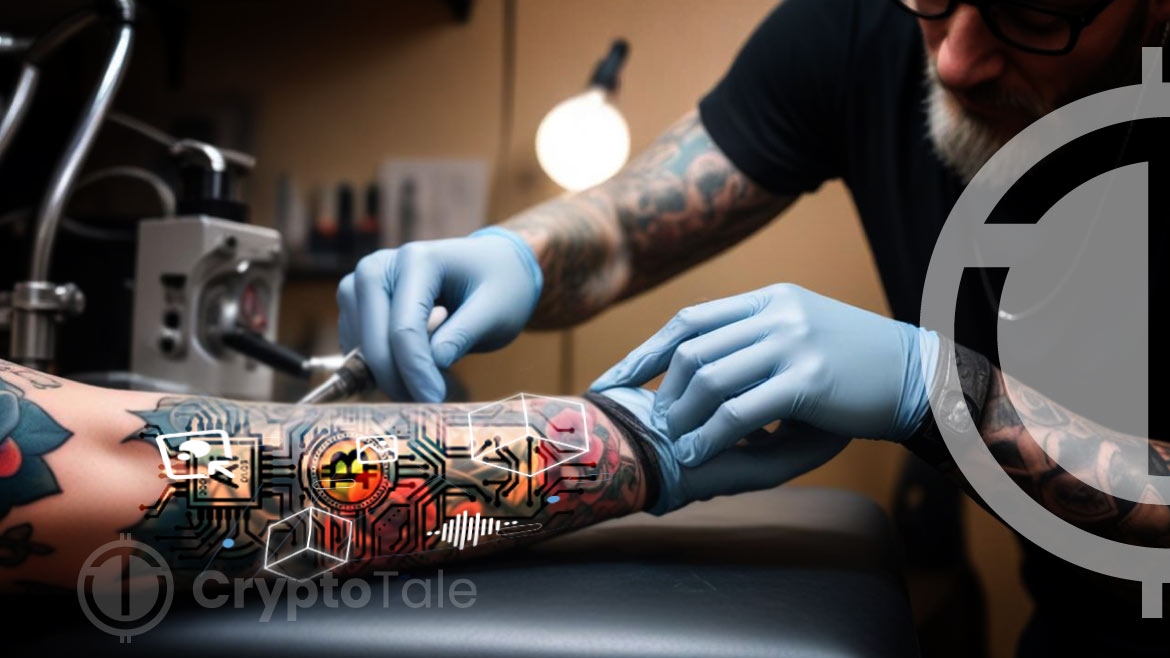- Parity’s “Proof-of-Ink” uses blockchain tattoos to secure digital identity and ensure privacy.
- Gavin Wood announces Proof-of-Ink, launching in Q4 2024, advancing Web3’s mainstream adoption.
- Unique blockchain-generated tattoos with Proof-of-Ink provide privacy-focused digital identity.
Parity Technologies has unveiled a pioneering solution to secure digital individuality in the Web3 ecosystem. Known as “Proof-of-Ink,” this innovative approach would allow users to authenticate their digital identities while maintaining privacy, marking a significant step toward mainstream Web3 adoption.
Gavin Wood, co-founder of Ethereum, Polkadot, and Kusama, announced the upcoming launch of Proof-of-Ink during his keynote at the Web3 Summit in Berlin. The solution is slated to debut in the fourth quarter of 2024, offering a unique method for proving digital citizenship through algorithmically generated tattoos. These tattoos would be strategically placed on the body, ensuring privacy and individuality. Each design will be unique, created by random numbers generated on the blockchain, making it impossible for two users to share the same tattoo.
According to a recent report, Wood emphasized the importance of digital individuality in a decentralized internet, highlighting that the consistent placement of these tattoos is crucial for privacy. The tattoos are not merely symbolic, they would serve as a functional proof of identity within the Web3 space.
To prevent spam and ensure system integrity, users must spend a small balance of Polkadot tokens or use vouchers that may be distributed within the Web3 community. This requirement is a type of Sybil resistance, protecting the system from fraudulent requests.
Wood also hinted at two additional digital identity solutions currently under development, though details remain undisclosed. These solutions and Proof-of-Ink are expected to play a critical role in advancing Web3 adoption by providing secure, private, and decentralized identity verification.
HashKey & Catizen Partner for Web3 GameFi Expansion on TONThe introduction of Proof-of-Ink aligns with broader efforts to safeguard financial privacy in digital transactions. Wood, echoing concerns raised by whistleblower Edward Snowden, stressed the need for proofs that do not identify users to prevent financial censorship.
This move is seen as essential for Web3’s long-term success, particularly in a world where financial transactions are increasingly subject to scrutiny. As the launch of Proof-of-Ink approaches, the Web3 community is eager to see how this innovative solution would contribute to the evolution of a more decentralized and privacy-focused internet.






